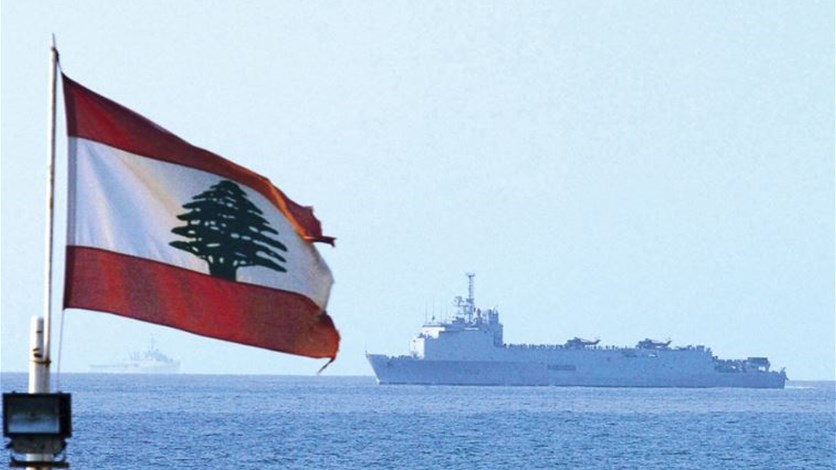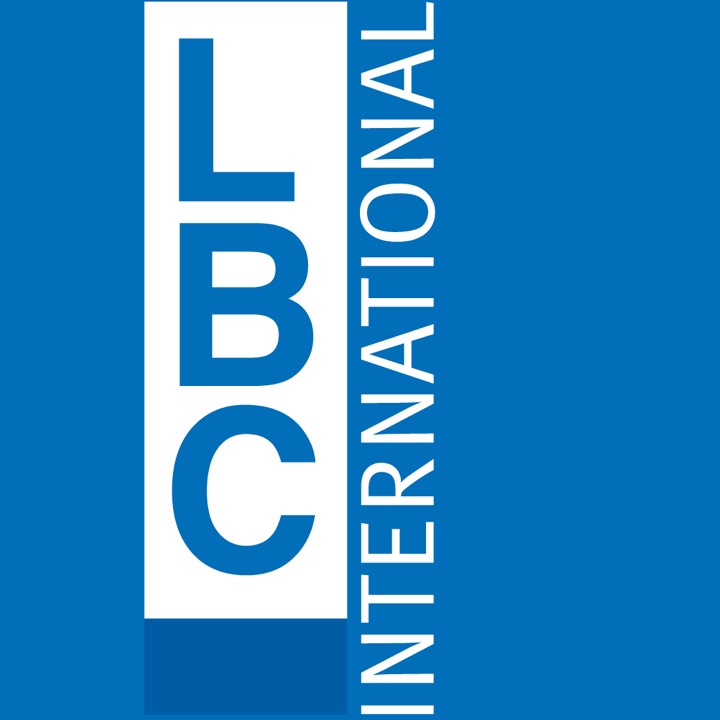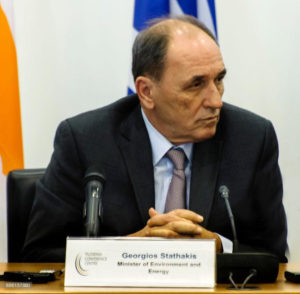A Trump Darling, Gas Exports, Set to Gain as Iran Deal Dies

Another darling of the Trump administration is poised to gain from the Iran deal breakup as oil surges: Natural gas exports.

Another darling of the Trump administration is poised to gain from the Iran deal breakup as oil surges: Natural gas exports.


شدد الخبير النفطي الدولي رودي بارودي على “أن التوصل الى اتفاق تفاوضي جيد من خلال وساطة أو تحكيم طرف ثالث، قد يعني نصرا اكبر بكثير للبنان بدل إسرائيل في النزاع الحاصل حول النفط والغاز في البحر”.
واكد بارودي الذي شارك في مؤتمرات دولية عدة آخرها في قبرص “أن هناك عوامل أخرى تبشر بالخير بالنسبة إلى الآفاق القانونية اللبنانية القصيرة والطويلة المدى، بما في ذلك حقيقة أن الجزء من البلوك 9 الذي تهتم به توتال وآني ونوفاتيك، يكمن بوضوح في المياه اللبنانية، وهذا يترك مجالا واسعا لحل وسط وقصير الاجل، على الأقل يسمح بالاستكشاف في المناطق غير الخاضعة للنزاع مع ترك أسئلة اكثر صعوبة في وقت لاحق”.
ولفت بارودي الى “أن نوعية المعلومات التي قدمها لبنان إلى الأمم المتحدة والأطراف الأخرى المهتمة تعطي اهمية كبيرة لموقفه وبأكثر من طريقة”.



ATHENS: Offshore gas from the Eastern Mediterranean could usher in a new era of energy independence and economic renaissance for Europe, a regional energy expert told a high-profile industry conference in Athens on Friday.
“Almost instantly, the flow of East Med gas into Europe would mean additional diversification and flexibility of supply, closely followed by enhanced competitiveness for European industry, accelerated economic growth, and dramatic long-term improvements for public finances,” Roudi Baroudi, a veteran of more than 36 years in the oil and gas business, told the Athens Energy Conference.
While “East Med gas would be more of a complement than a competitor to supplies already flowing … from Russia” and other countries, he explained, other factors were also likely to help Europe diversify its energy supply, putting downward pressure on prices and “reducing the potential impact of possible interruptions elsewhere”.
Baroudi, who currently serves as CEO of Energy and Environment Holding, a Doha-based independent consultancy, has advised governments, companies, and multilateral institutions on energy matters, even helping to craft policy for agencies of the European Union and the United Nations. Speaking on the sidelines of the conference, which drew a broad audience including senior figures from both the public and private sectors, he said the timing “could not be better” for Europe.
“Shale gas has made America another energy superpower alongside Russia and OPEC, and liquefied natural gas is now a fully fledged global commodity,” he said. “Plus, the East Med producers will be sitting on Europe’s doorstep, and several countries are already gearing up to start taking massive LNG shipments. Decades of benefits for hundreds of millions of people, all there for the taking.”
And expected producer countries like Cyprus, Greece, and Lebanon, Baroudi added, stand to gain even more. “For a variety of historical reasons, most of these countries have not yet achieved the levels of development enjoyed in most of the European Union,” he told the conference. “Given the potential rewards for their peoples, the governments involved have nothing less than a moral responsibility to take advantage of propitious circumstances by tapping the oil and gas wealth within their respective social, economic, and geopolitical reaches.” Baroudi also has emphasized some of East Med countries are not party to UNCLOS but all countries are signatories to the UN Charter. Therefore, Baroudi reminded that all these countries are under an obligation to “settle their international disputes by peaceful means in such a manner that international peace and security, and justice, are not endangered.”
He also sounded notes of caution, however. For one thing, he stressed the need for producer countries to ensure proper management of the proceeds from gas sales to pay social justice. For another, he reinstated on the same countries to avoid international tensions that might impede development of the sector.

2017 has been another year marked by regional geopolitical tensions and rivalries but despite this very high level of volatility, new exploration projects are underway in Greece and Cyprus creating new potential for investments in the oil & gas industry. At a global scale, the uncertainties created by Brexit and the renewed friction in US-Russian relations continue to mar the possibility for regional stability as US and EU sanctions against Russia remain in full effect. The new set of challenges that will affect EU’s Climate and Energy Policy to 2030 and beyond after President Trump’s decision to withdraw from the Paris Climate Accord.
– Diversification of energy sources to bring about energy independence for the region
– The impact of Brexit on EU Security & Energy Policy
– Energy sector as a leveraging tool despite geopolitical challenges
Introduction & Chair: Athanasios Ellis, Editor in Chief, Kathimerini English Edition
– Progress report on IGB and the dynamics of a second LNG imports facility in Alexandroupolis
– TAP: Progress Report and Phase 2
– The feasibility of the East Med Gas Pipeline
– The LNG export option
Speeches: